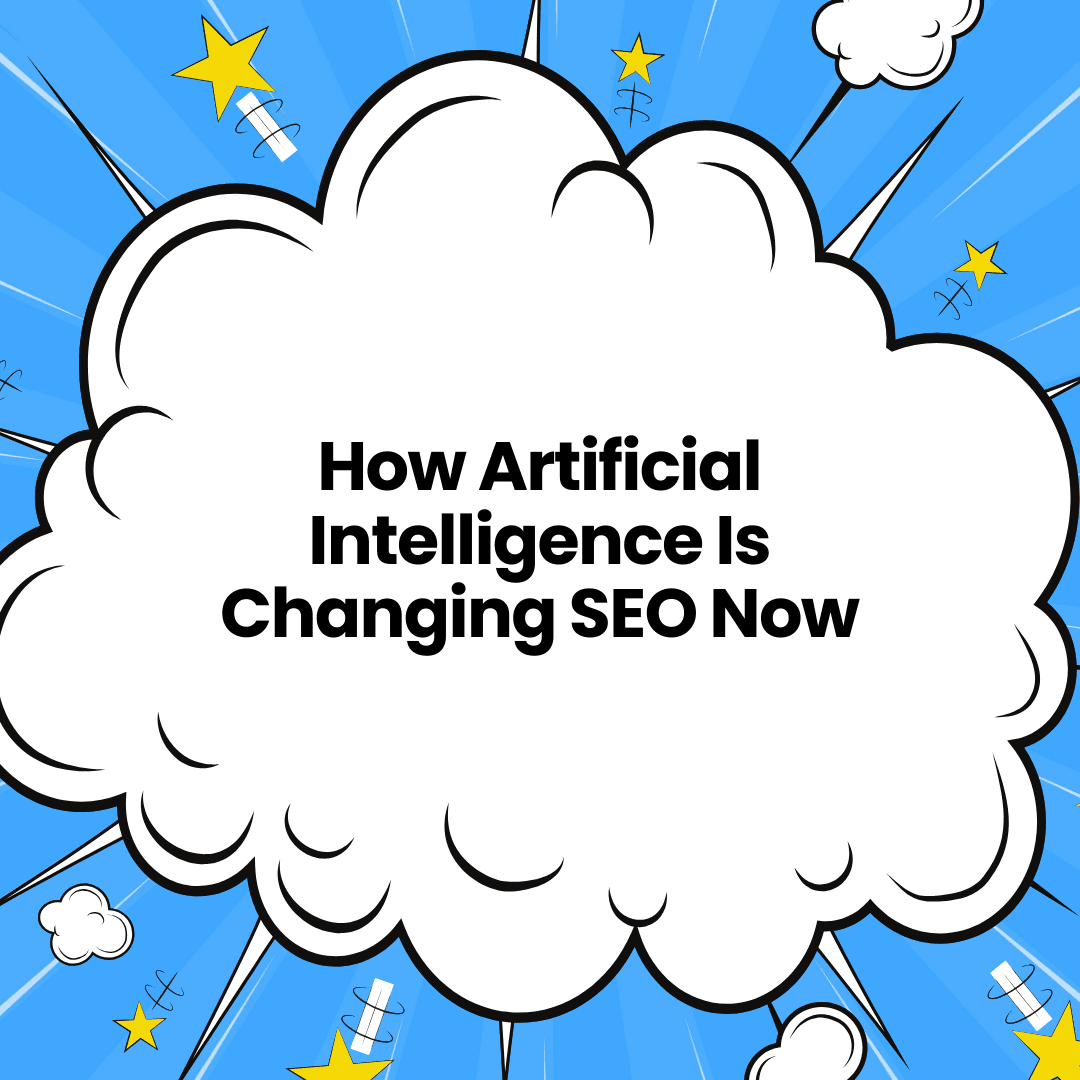Search engine optimization (SEO) is not the same as before. In fact, it’s changing fast. Artificial intelligence (AI) is one big reason behind this shift. If you don’t adapt, your website could lose traffic.

What Is AI in SEO?
To begin with, AI in SEO means using smart tools and systems to help websites rank better on Google. These tools learn from data. Then, they decide which content is more useful for users.
For example, Google uses AI tools like RankBrain and BERT. These tools help Google understand what people are really trying to find. As a result, tricks like keyword stuffing no longer work.
Instead, content needs to match real user needs.
AI Helps Google Understand User Intent
Before AI, search engines only looked for matching keywords. Now, they try to understand what the user really means.
For instance, if someone types “best shoes for standing all day,” Google will show product reviews, comfort tests, and expert opinions. That’s because AI understands the intent — not just the words.
Therefore, your content must give helpful, direct answers to what people are truly looking for.
AI and Voice Search
In addition, AI has made voice search smarter. People use voice assistants like Siri, Alexa, or Google Assistant more than ever. When people speak, they use natural, full sentences.
That’s why, to rank in voice search, your content should also sound natural. Keep it short. Make it easy to understand. Answer common questions clearly.
As a result, you’ll increase your chances of being the top voice result.
AI Tools Help You Optimize Better
Luckily, AI isn’t just for Google. You can use it too.
Nowadays, tools like Surfer SEO, ChatGPT, and Jasper help you create better content. These tools suggest topics, improve headlines, and even write draft articles.
Because of this, you can save time and create stronger SEO content.
Still, don’t rely only on tools. Your content should still sound real and personal.
AI Improves Rankings Through User Experience
Another big change is how Google measures user experience. AI watches how people act on your site.
For example:
- Do they stay and read?
- Do they click around?
- Do they leave right away?
If people enjoy your content, AI notices. Therefore, your page is more likely to rank higher.
So, always aim for good structure, fast loading, and clear writing. Break text into short sections. Use bullet points and subheadings often. These small changes make a big difference.
What Should You Do Now?
Now that you know AI affects SEO, here’s what you can do next:
- First, focus on solving real problems in your content
- Then, write for people — not for search engines
- Next, try using AI tools to help you plan and improve
- Finally, stay updated — AI and SEO change often
By following these steps, you can stay ahead.
Final Thoughts
In short, AI is changing how SEO works — right now. But don’t worry. If you create helpful, easy-to-read content, you’re on the right path.
So, use AI to your advantage. Learn how it works. Try smart tools. And most importantly, write content that real people will love.
Because when you help your readers, Google — and AI — will reward you.
Feel free to contact us for a free consultation.

